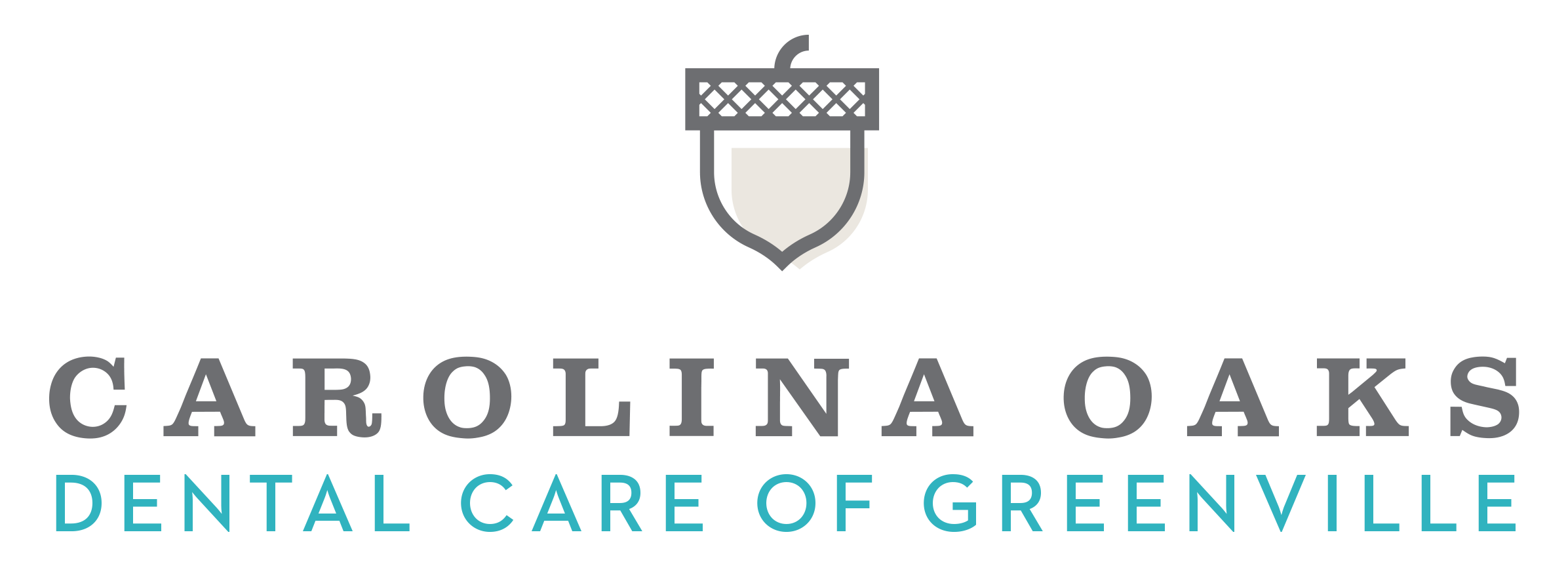For most people, dental insurance isn’t guaranteed, even with excellent health insurance coverage. The decision to enroll in a dental plan is one that can save you lots of money in the long run, but it may not be for everyone. If you do enroll, what factors should you consider when choosing a plan?
We receive a lot of questions from our patients about dental insurance, so we’ve compiled these frequently asked questions (FAQs) to offer general guidance on the sometimes confusing role of dental insurance.
If you need dental care for your family, contact Carolina Oaks Dental Care. We can help you understand the ins and outs of your insurance plan, and get you the care you need! Call our Greenville, SC, dental practice at 864-235-3949 to make an appointment today.
How much coverage do I need?
This is a complex question, and one that every family will need to consider individually. Most insurers offer basic and extended coverage, and the best way to decide between the two is to consider your predicted dental needs.
There are many factors you may want to consider:
- Your dental history – If you are one of the lucky 1% of people who never get cavities, congratulations. But most of us are not in that group. The question of basic versus extended coverage may be easier to decide if you look at the restorations you’ve needed of the past several years. If your cavities are few and far between, and you do not miss dental appointments, basic coverage should be fine.
- The size of your family – For families with multiple children, the costs of restorative dental care can become a major concern. Even if your children and spouse have healthy teeth now, the cost of fillings and root canals can add up quickly, should the situation should change. Keep in mind that the hormonal changes that accompany puberty can make children more susceptible to cavities.
- Your age, lifestyle, and medical conditions – As a typical rule, any on-going medical conditions that contribute to your overall health should be considered from a dental point of view. Periodontal problems tend to show up during menopause, for example, and acid reflux can contribute to the erosion of your enamel. If you take medications on a regular basis, they may contribute to oral conditions such as dry mouth, which can make you more prone to tooth decay.
- Your family’s dental history – If your dental history is checkered, or if your parents have had dental problems, you may wish to opt for more coverage, as many dental conditions have a genetic link.
- Will my children need braces? – If you and your spouse needed braces as a child, it’s likely your children may need them as well.
If you are comparing dental plans and not sure how your family’s situation might be affected—call us and ask. What is a complex question to you is routine for us. At Carolina Oaks Dental Care, we always want to help our patients have the knowledge they need to make good decisions for their families.
What does most insurance cover?
Before you compare dental plans, it’s important to understand the different levels of dental care you may need. Most insurance plans offer very similar coverage, but you should know which differences to look for, based on your circumstances and predicted dental needs.
In general, most plans cover the following treatments:
- Preventive Dentistry – These treatments get the most coverage, and many are 100% covered, depending on the provider. Preventive treatments are the cornerstone of modern dentistry, and include dental cleanings, exams, x-rays, and fluoride treatments and sealants for children.
- Basic Restorations – This includes occasional restorative dentistry procedures such as dental fillings, root canal procedures, and periodontal therapy. Insurance usually pays for some of these costs, but the patient always pays a portion, usually 20-30%.
- Major Dental Work – Patients often have to pay 40-60% for major dental procedures, such as wisdom teeth extraction, dental implants, crowns, and bridge work. This type of dental work is needed less frequently than basic or preventive care, but the cost of these procedures are much higher.
- Orthodontia – Most comprehensive plans have some provision for orthodontia, but these can vary greatly. Consider and compare this carefully if you have children who may need braces in the future.
What’s the difference between a DHMO and PPO?
A DHMO is a plan that offers you dental care from a smaller list of contracted dentists. If you are looking for the most affordable plan that will benefit your family, A DHMO will get you the care you need. However, you may be more limited in your choice of dentists and services than with a PPO.
A PPO offers a wider network of providers to choose from in-network, and will usually cover out-of-network providers, though at a different rate. You will have more flexibility with a PPO, but the monthly cost will be higher than a DHMO.
Do I really need dental insurance?
While everyone should have medical insurance, there are actually plenty of people who may not need dental insurance. If you are a single person, whose teeth have always been in relatively good condition, there may not be a need for dental insurance at this time. It may actually cost you more to enroll in a plan than to pay for routine preventive and restorative treatments out of pocket.
If you are calculating the need for insurance, add up the cost of two routine preventive visits per year (dental cleaning and dental exam), along with the cost of one or two fillings. Emergencies notwithstanding, you may pay less without insurance coverage. If emergencies come up, many patients refer to companies such as CareCredit, which offer extended payment plans with little-to-no interest.
The best person to help you determine whether you need insurance is actually your dentist. It’s best to get a professional assessment of the general health of your teeth before you try to predict the future.
We do not recommend the no-insurance path if you haven’t been to the dentist for routine visits in a number of years. Avoiding dental visits is the best way to cause dental disasters. If you have gone without a dental disaster (and without routine care) for a period of time, there’s a good chance your lucky streak will end in the future!
Take the Time to Learn More
For more information, look to dental insurance sites that aim to inform, rather than sell. They can offer objective information that will help you compare plans and coverage options for you and your family. Your employer may have benefits comparison charts available, as well, so ask!
If you need dental care for your family, contact Carolina Oaks Dental Care. We can help you understand the ins and outs of your insurance plan, and get you the care you need! Call our Greenville, SC, dental practice at 864-235-3949 to make an appointment today.


